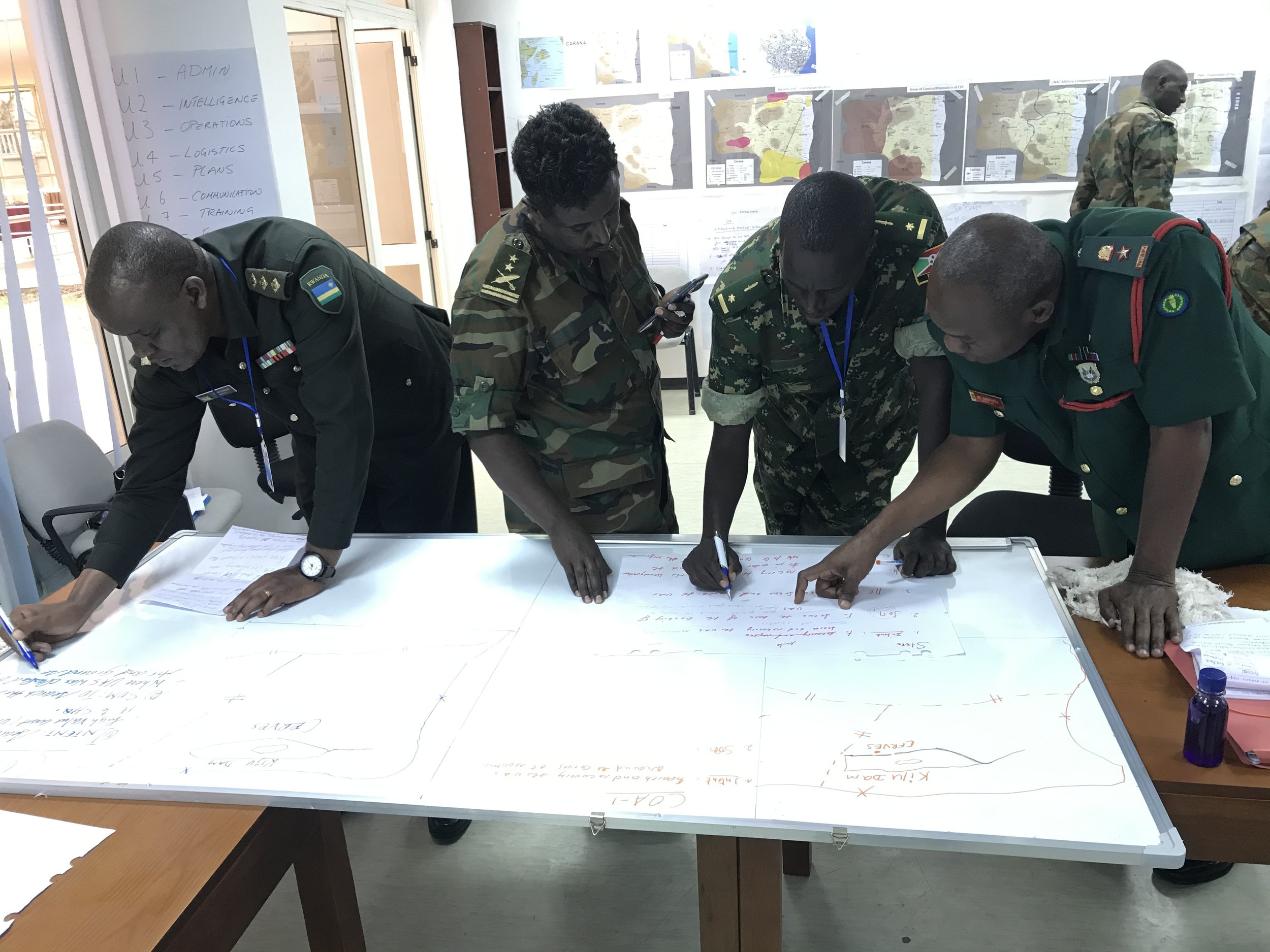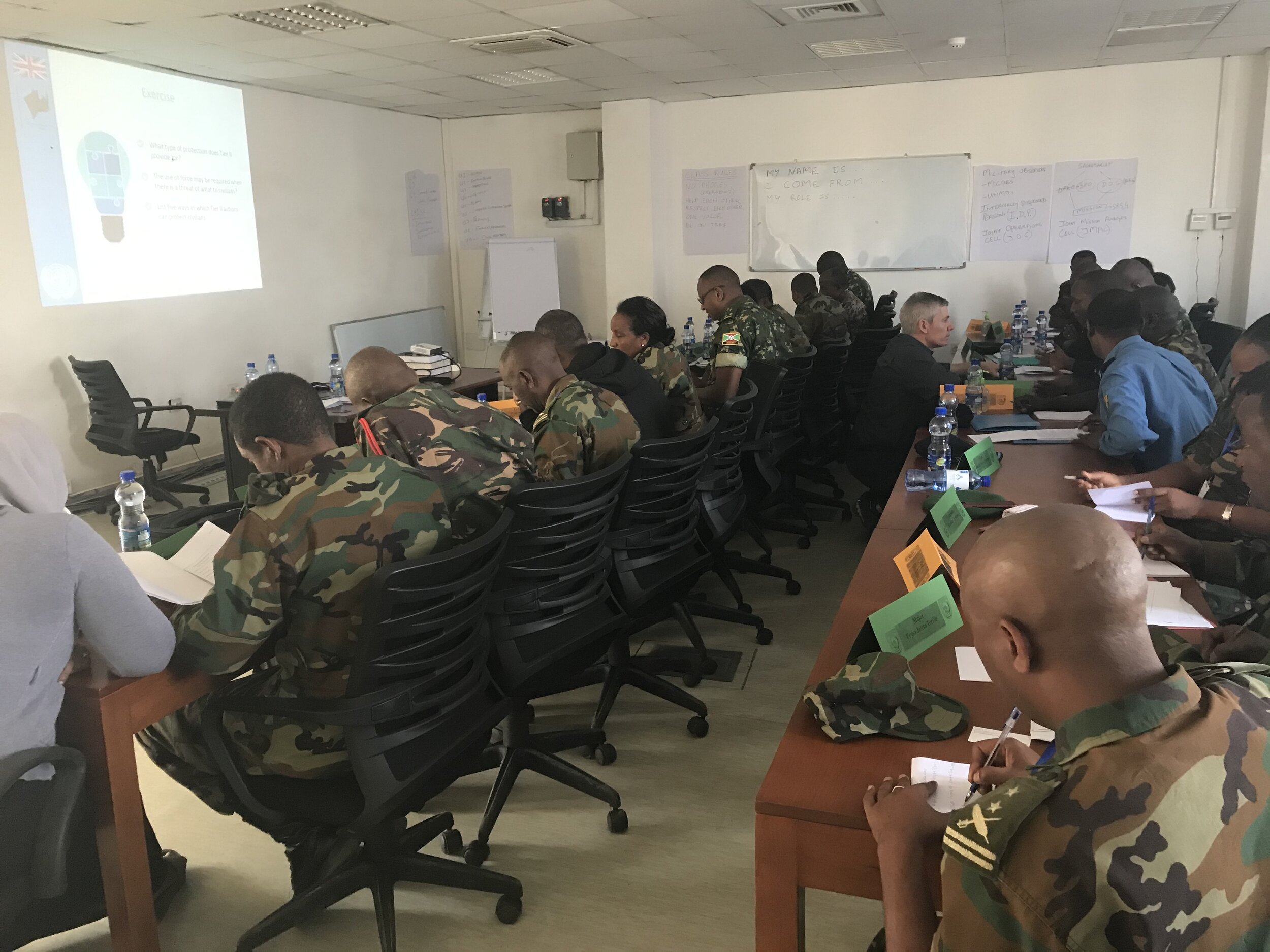UN Military Planning Capacity Development
WARGAMING IN PROGRESS
BACKGROUND
The UN has identified tactical level planning as a capability gap among Staff Officers from TCCs on peacekeeping operations. BPST(A) determined to address this gap with East African Staff Officers and through the UK Government’s Conflict Stability and Security Fund (CSSF), Artios designed, delivered and evaluated a UN military planning course to enhance future peacekeeping operations.
OUR ROLE
OPS ROOM BRIEFING
Artios successfully delivered a two-week UN Military Planning course for the British Peace Support Team (Africa) (BPST(A)) in March 2020. This training enhanced the military planning capacity of Staff Officers from Ethiopia and other UN Troop Contributing Countries (TCC) for peacekeeping operations. Artios conducted a needs analysis and designed a Training Management Package, prior to deploying a 3-person training team to the Ethiopian Peace Support Training Institute. The training was designed to utilise adult learning best practices and ensure that students were able to reflect and share their personal experiences of UN policy, doctrine and standards.
RESULTS
The course was attended by 31 participants from military and police forces of Ethiopia, Tanzania, Rwanda, Burundi and Kenya. Assessments were conducted at different stages throughout the course, through which a marked change in the knowledge, skills and attitudes of the students was recorded. In addition to formal theoretical assessments, the students also undertook a range of practical syndicate-based exercises to simulate the application of the MPP in practice. These tested the students in a variety of staff roles working collectively to create planning products.
All students demonstrated a significant improvement in their application of the UN MPP by the end of the course and the following key objectives from BPST(A) were achieved:
THEORY AND DISCUSSION
Students can identify and understand the 5 Stages of the military planning process (MPP)
Students can explain the basic methods to analyse the operational environment
Students can undertake the analysis of the operational environment
Students can develop courses of action
Students can evaluate and select the most appropriate courses of action
Students have the ability to draft and deliver a plan, complete with CONOP
With special thanks to:
British Peace Support Team (Africa)
Peace Support Training Institute, Ethiopia
CSSF



